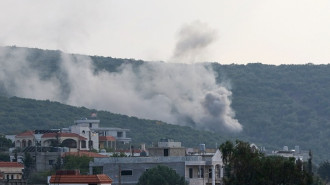60 protesters killed in Sudan’s Saudi-backed military crackdown
A previous toll given by the Central Committee of Sudanese Doctors had counted 40 dead since the bloody dispersal of a weeks-long sit-in outside army headquarters in Khartoum on Monday.
The committee said it held "the militias of the (military) council... responsible for this massacre."
Protesters have previously singled out the Rapid Support Forces, paramilitaries with origins in the 16-year-old war in the western region of Darfur whose commander is deputy chairman on the ruling military council.
Following the deadly crackdown, the military council announced it was abandoning all previous agreements reached with protest leaders on a transition to civilian rule.
The blooded assault was launched shortly after top Sudanese generals visited Riyadh, Abu Dhabi and Egypt to secure support for their takeover, with observers arguing the transitional military council received a green light from the three powerful Arab states for their move.
The protest movement in turn dismissed the generals' promise of elections within nine months instead.
On Wednesday hundreds of residents of the northern suburb of Khartoum Bahri blocked off streets with barricades made from stones, and waited by them in silence, a witness told AFP.
In the distance gunfire could be heard.
In the early morning, sporadic shooting could be heard in the Khartoum 2 neighbourhood, an area where there are several embassies, an AFP reporter said.
Rights watchdog Amnesty International deplored the army's violence which "destroyed the trust of the Sudanese people".
"Many of those attacked this morning were sleeping when the Rapid Support Forces and other Sudanese security agencies began unleashing deadly violence. With this senseless slaughter the [transitional military council] has completely destroyed the trust of the Sudanese people and crushed the people's hope for a new era of respect for human rights and respect for the right to protest without fear," Sarah Jackson, Amnesty International's Deputy Regional Director for East Africa, the Horn and the Great Lakes, said.
"The Sudanese people suffered for decades under the repressive rule of Omar al-Bashir, and his ousting should have represented a new chapter of respect for human rights," Jackson said.
Follow us on Twitter: @The_NewArab





 Follow the Middle East's top stories in English at The New Arab on Google News
Follow the Middle East's top stories in English at The New Arab on Google News

![Algeciras port [Getty]](/sites/default/files/styles/image_330x185/public/75377010.jpeg?h=327453ef&itok=KfCFUEza)
